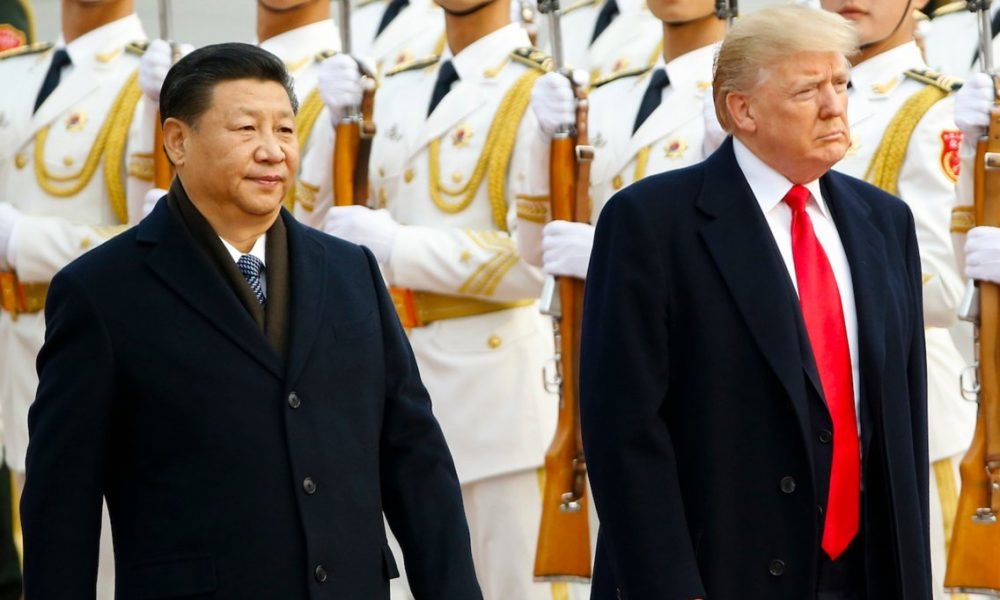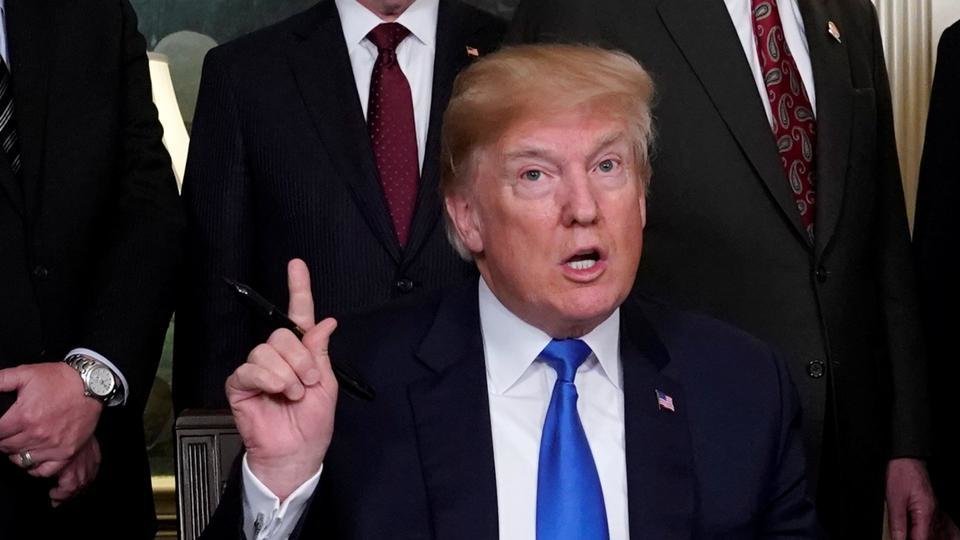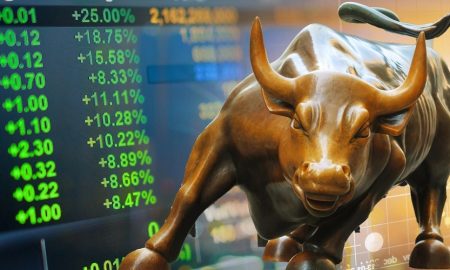
Trump’s Enforced High Taxes on Chinese Imports Left Retailers Extremely Unhappy

A concerned body of retailers has warned that customers in America might suffer severe consequences of Trump’s decision to charge somewhere around $50 billion on rates. These retailers include some of the the US most powerful players like; Walmart, Gap, Target and Levi’s. If the planned tariffs on imported items coming from the Chinese territory pull through, the prices will increase as well. They also feel that the Levi’s will frustrate their aim of eradicating unjust trading.
Last Thursday, Trump appended his signature on a document which gives directives to the American trade union to enforce a levy worth $50 billion on every imported China goods, and the new law is expected to be effective in less than two months’ time. The instructions contained therein says that the Department of Treasury has two months to propose restraints to Trump on investments from China. Furthermore, the letter added that the representatives of a trade union should go after an effective resolution to disagreement within the World Trade Organization, to settle the system of technology permit from China which reeks of prejudice.

President Donald Trump recently signed a memo that will start an increased tax on China imports in two months’ time.
Trump has already set the stage
Before endorsing the memo on Thursday, Trump explained that his government is doing everything to develop America, things which are long overdue. He said the US had experienced harassment from other nations and bodies of nations that come together with the aim of taking leverages on America, something he’s determined to forestall.
He blamed China for engaging in unjust trading systems, among which is the infringement on copyright laws by unlawfully using trademarks belonging to the US, and controlling the currency. Trump also condemned abundant China’s trading of items with America, an estimated $376 billion worth in 2017.
Reacting to this decision, the vice chairman of Retail Industry Leaders Association, an international organization for retailers, Hun Quach, commented that the US president’s plan to inflate tax on imported consumer items is off point, although the action is targeted at paying China back for breaking the laws of intellectual rights in America. He argues that the burden will be on the customers who buy the items.
The punishment intended for China will surely have side effects on US shoppers who may be forced to buy these goods at exorbitant rates while checking out in shops, Hun observed. The worried body of retailers has already sent an appealing letter to the US president, where the big payers emphasized on the unpalatable consequences his decision will have on shoppers when prices of goods skyrocket.
In the note, the body reminded Trump of the existing US import charges between 33% to 68%, being placed on essential wears and footwears. As a result, families who patronize their stores are being forced to buy goods at expensive rates. They argued that if extra levies are placed on imported items, the situation will become harder, encouraging inequality and make things more difficult for average families in America who may not be able to afford essentials like electronics or fashion items.

Chip Bergh, president of Levi Strauss & Co
Levi’s against Trump
One of the companies that also signed on the note was Levi’s. Ironically, Levi’s had encountered issues with China where some pirates had produced fake versions of its products. Currently, the company is in Beijing to fight a case with two China-based firms that are accused of selling its products to their customers without permission from the owner, Levi’s. A similar thing happened about six years ago when one company in China embedded the stitches belonging to Levi’s brand on its goods. Fortunately, Levi’s gained victory in that lawsuit.
In spite of these first-hand problems with China, the American company, still stands against Trump’s decision, because the company had nonetheless gained immensely from the present type of trade practices without tough imposition.
Trump had earlier introduced taxes on the importation of aluminum and steel, before coming up with the proposed tariffs on imported goods within the same week. The steel and aluminum tax has been effective since Friday, and at first, Mexico and Canada were excluded. On the same Thursday, the delegate from the US trade, Robert Lighthizer, explained during a Senate meeting with the committee on finance, that Brazil, South Korea, European Union, Australia, and Argentina would be excluded from the tax imposition as well.

Jack Ma, co-founder of Alibaba, during a press briefing in Davos, Switzerland
Although industries from China have been waiting for this tax imposition, it nonetheless sounds unappealing to them. Using a weapon in the form of trade to fight the issue is not the right thing to do, rather finding the lasting solution to the problem through trade is the best, noted the president and co-founder of Alibaba Group, a leading online giant in Asia, Jack Ma. He said this while speaking during a Summit of the World Economic Forum, held in Switzerland a couple of months ago.
On the other hand, Wilbur Ross, secretary to the US Commerce, feels otherwise. During a press briefing at the event, Ross said that using trade as a weapon is quite acceptable because defaulters who break trade laws on a daily basis, will continue with their activity.
More in Advisor
-
`
Streaming Giant Netflix Faces Yet Another Challenge
In the ever-evolving landscape of streaming entertainment, Netflix, once the unchallenged king of digital content, now faces a complex puzzle beyond...
December 1, 2023 -
`
Signs You Should Quit Your Current Job & Move On
You Don’t Feel Comfortable at Work Imagine spending the majority of your waking hours in a place where you feel uneasy,...
November 20, 2023 -
`
How to Adjust and Renew Your Portfolio
Investing in the financial world is like navigating an ever-changing landscape—constantly evolving, always shifting. The key to staying on track? Regularly...
November 18, 2023 -
`
Dr. Dre’s Divorce With Nicole Young: A Closer Look
When the beats of old-school hip-hop start bumping, Dr. Dre’s name reverberates in fans’ minds worldwide. Born as Andre Young, this...
November 12, 2023 -
`
Why Branded Content Is the Best Way to Connect With Your Audience
Have you ever found yourself deep in a compelling article or engrossed in a video series, only to later discover that...
November 5, 2023 -
`
Why the Gender Pay Gap Could Be Getting Worse | New Research Findings
At a time when women are making significant strides in various professional arenas, a new report throws light on a trend...
October 28, 2023 -
`
What Is a Bull Market and How Can Investors Benefit From One?
In finance, the term “bull market” is frequently used to describe a period of optimism, rising asset prices, and investor confidence....
October 19, 2023 -
`
A-List Power Couples Where the Women Make More Money
In an era of shifting gender roles and evolving definitions of success, it’s increasingly common to find celebrity couples where the...
October 15, 2023 -
`
Massive Price Cuts: Tesla Only Witnesses ‘Modest’ Sales Gain in China
Cutting Down Prices, But Not Cutting the Mustard? Summer 2023 brought with it a promise of sunshine and relaxation. For Tesla...
October 8, 2023















You must be logged in to post a comment Login